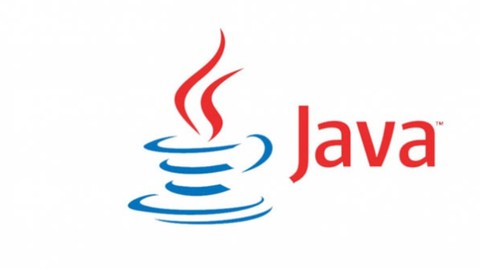
Core Java for complete beginners
Core Java for complete beginners, available at $19.99, has an average rating of 3.67, with 112 lectures, based on 3 reviews, and has 21 subscribers.
You will learn about Java basics with brief history, installation and immediate hands on programming Java datatypes and primitives Java looping constructs Java Collections framework Java Functional Interfaces with lambda expressions This course is ideal for individuals who are Beginner and intermediate java developers It is particularly useful for Beginner and intermediate java developers.
Enroll now: Core Java for complete beginners
Summary
Title: Core Java for complete beginners
Price: $19.99
Average Rating: 3.67
Number of Lectures: 112
Number of Published Lectures: 112
Number of Curriculum Items: 112
Number of Published Curriculum Objects: 112
Original Price: $69.99
Quality Status: approved
Status: Live
What You Will Learn
- Java basics with brief history, installation and immediate hands on programming
- Java datatypes and primitives
- Java looping constructs
- Java Collections framework
- Java Functional Interfaces with lambda expressions
Who Should Attend
- Beginner and intermediate java developers
Target Audiences
- Beginner and intermediate java developers
In this course you will be learning Java programming.
Java as a programming language offers some key benefits to any organization and learning it in depth will definitely make one’s career bulletproof.
Java a very versatile language – not restricted to any one particular industry, making it usable everywhere.
Used across all platforms ranging from Android development to Web development and REST APIs to Machine Learning, AI and automation. One of the earliest versions of Java was also used to remotely guide NASA’s Mars rover.
Lastly, Java and related technologies are always in high demand. So you may eventually work on microservices or create other cloud native applications based on a different technology. But a strong foundation in Java will accelerate your learning and give you an edge like none other.
The principles taught in this course and the method of teaching will encourage you to think like a programmer.
This course is based on learning by doing methodology. It would ensure retention of concepts and solidify your learning.
Here is a glimpse of what you would learn in the course:
-
Basics of Java
-
Concepts – Java compiler vs Interpreter
-
JVM vs JDK
-
Java Primitives
-
Java Operators and Control Statements
-
Object Oriented Programming Concepts –
-
Classes Objects (this and static)
-
Inheritance
-
Abstraction
-
Polymorphism
-
Encapsulation
-
-
Generics
-
Java Collections Framework
-
Java Functional Programming
-
Java Streams
Course Curriculum
Chapter 1: Introduction
Lecture 1: Introduction
Lecture 2: Why Java
Lecture 3: Java timeline
Chapter 2: Installation and setup
Lecture 1: Introduction
Lecture 2: Which Java to use
Lecture 3: Installation on Windows
Lecture 4: Installation on Mac OS
Lecture 5: Eclipse IDE set up
Chapter 3: Java Basics
Lecture 1: Your first java program – do not skip
Lecture 2: Basic Concepts – Understand your first program
Lecture 3: Java Compilation and Platform independence
Lecture 4: Java versus other languages
Chapter 4: Java primitives and variables
Lecture 1: Variables
Lecture 2: Variables – Coding Challenge
Lecture 3: Variables – Coding challenge solution
Lecture 4: Java identifiers
Lecture 5: Primitive datatypes
Lecture 6: Numeric primitive datatype limits
Lecture 7: Datatypes – Coding challenge
Lecture 8: Datatypes – Coding Challenge solution
Chapter 5: Java OOP Part1: Classes and Objects
Lecture 1: Java Classes and Objects
Lecture 2: Java class – hands on
Lecture 3: Java object – hands on
Lecture 4: this and static keywords
Lecture 5: Constructor methods
Lecture 6: Coding Challenge – Classes and Objects
Lecture 7: Coding Challenge Solution – Classes and Objects
Chapter 6: Java Statements and Operators
Lecture 1: Introduction
Lecture 2: Java Statements and expressions
Lecture 3: Java Operators
Lecture 4: Operators – hands on
Chapter 7: Java Flow control
Lecture 1: Introduction
Lecture 2: Decisions – If statement
Lecture 3: Decisions – Switch statement
Lecture 4: Best practices – Switch vs if-else
Lecture 5: Ternary operator
Chapter 8: Java Arrays
Lecture 1: Introduction
Lecture 2: The String datatype
Lecture 3: Command line arguments
Lecture 4: Coding Challenge – command line basic calculator
Lecture 5: Coding Challenge Solution – command line calculator
Chapter 9: Java Loop Construct
Lecture 1: Introduction
Lecture 2: While loop
Lecture 3: Infinite while loop
Lecture 4: For loop
Lecture 5: Modified for loop – readonly
Lecture 6: Do-While loop
Lecture 7: Coding Challenge – Build a stock trading platform
Lecture 8: Coding Challenge Solution – stock trading platform
Chapter 10: Wrappers and Reference types
Lecture 1: Introduction
Lecture 2: Objects vs Primitives
Lecture 3: Why Wrapper Classes
Lecture 4: Wrapper Classes – hands on
Lecture 5: Boxing and Unboxing
Lecture 6: Wrapper and String class immutability
Lecture 7: Best Practice: StringBuffer instead of String
Lecture 8: Reference variables and wrapping
Chapter 11: Java Object Oriented Programming – Concepts
Lecture 1: Introduction
Lecture 2: Encapsulation
Lecture 3: Inheritance introduction
Lecture 4: Inheritance – hands on
Lecture 5: @Override annotation
Lecture 6: Abstraction
Lecture 7: Java Interfaces
Lecture 8: Interfaces – default methods
Lecture 9: Abstract classes
Lecture 10: Polymorphism
Lecture 11: A note for students
Chapter 12: Java Collections
Lecture 1: Introduction
Lecture 2: List interface
Lecture 3: ArrayList
Lecture 4: ArrayList – Performance Consideration
Lecture 5: LinkedList
Lecture 6: Arraylist vs Linkedlist
Lecture 7: Coding Challenge – ArrayList vs LinkedList
Lecture 8: Coding Challenge Solution – ArrayList vs LinkedList
Lecture 9: Vector
Lecture 10: Stack
Lecture 11: List – Summary
Lecture 12: Sorting Lists – Comparator vs Comparable
Lecture 13: Set
Lecture 14: HashSet and LinkedHashSet
Lecture 15: TreeSet
Lecture 16: Queue
Lecture 17: Map Interface
Lecture 18: HashMap vs LinkedHashMap vs TreeMap
Lecture 19: Iterating Maps
Lecture 20: Collections – Summary
Instructors
-
Code Caffeine
Java, Spring, Microservices, Quarkus, DevOps, Jenkins
Rating Distribution
- 1 stars: 1 votes
- 2 stars: 0 votes
- 3 stars: 0 votes
- 4 stars: 0 votes
- 5 stars: 2 votes
Frequently Asked Questions
How long do I have access to the course materials?
You can view and review the lecture materials indefinitely, like an on-demand channel.
Can I take my courses with me wherever I go?
Definitely! If you have an internet connection, courses on Udemy are available on any device at any time. If you don’t have an internet connection, some instructors also let their students download course lectures. That’s up to the instructor though, so make sure you get on their good side!
You may also like
- Top 10 Financial Technology Courses to Learn in December 2024
- Top 10 Agile Methodologies Courses to Learn in December 2024
- Top 10 Project Management Courses to Learn in December 2024
- Top 10 Leadership Skills Courses to Learn in December 2024
- Top 10 Public Speaking Courses to Learn in December 2024
- Top 10 Affiliate Marketing Courses to Learn in December 2024
- Top 10 Email Marketing Courses to Learn in December 2024
- Top 10 Social Media Management Courses to Learn in December 2024
- Top 10 SEO Optimization Courses to Learn in December 2024
- Top 10 Content Creation Courses to Learn in December 2024
- Top 10 Game Development Courses to Learn in December 2024
- Top 10 Software Testing Courses to Learn in December 2024
- Top 10 Big Data Courses to Learn in December 2024
- Top 10 Internet Of Things Courses to Learn in December 2024
- Top 10 Quantum Computing Courses to Learn in December 2024
- Top 10 Cloud Computing Courses to Learn in December 2024
- Top 10 3d Modeling Courses to Learn in December 2024
- Top 10 Mobile App Development Courses to Learn in December 2024
- Top 10 Graphic Design Courses to Learn in December 2024
- Top 10 Videography Courses to Learn in December 2024






















